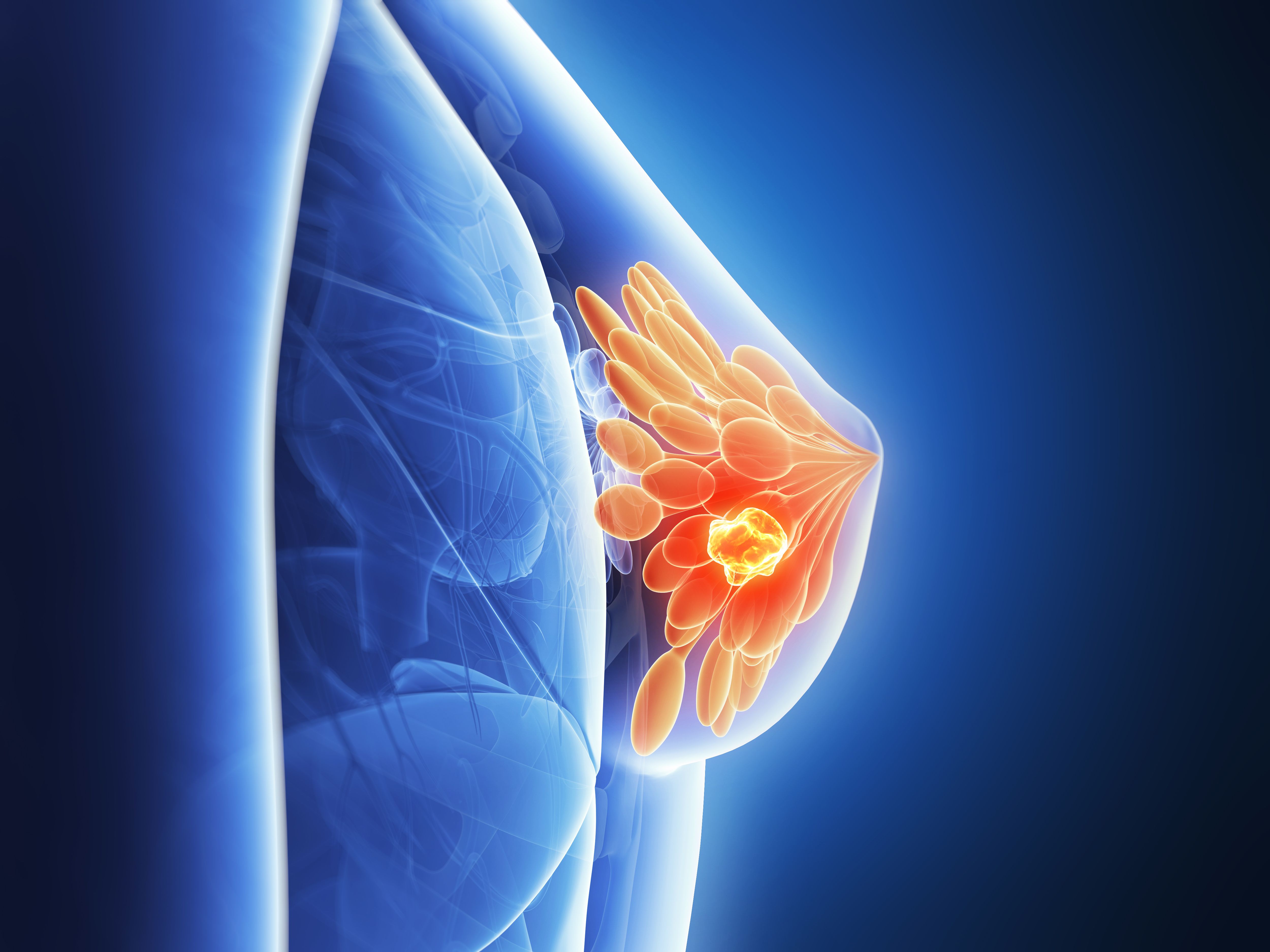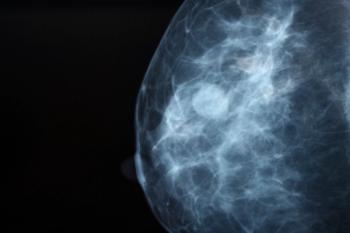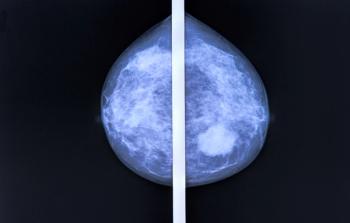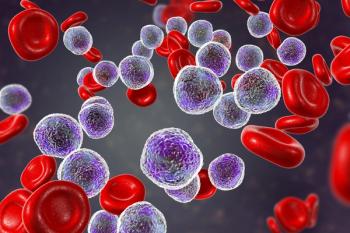
Breast Cancer
Latest News

Latest Videos

More News

Abemaciclib is the first and only FDA approved CDK4/6 inhibitor to treat HR-positive, HER2-negative high-risk early breast cancer.

The Pfizer-BioNTech COVID-19 vaccine induces similar levels of COVID-19 antibodies in patients with solid cancer compared with people without cancer.

BIPOC patients diagnosed with breast cancer often face additional barriers–like health disparities, health literacy, and lack of knowledge of the psychosocial effects–in comparison to other ethnic groups.

A 4-year follow-up of patients with treatment-naïve triple-negative breast cancer who received carboplatin plus neoadjuvant paclitaxel, followed by doxorubicin and cyclophosphamide, suggests that the regime induces superior pathological complete response and event-free survival.

“We want to make sure we can provide the right treatment for the right patient at the right time,” says Olufunmilayo I. Olopade, MD, FACP, OON.

With a newfound abundance of available oral cancer therapies, it has become necessary for oncology nurses to ensure that their patients are adhering to treatment.

CDK4/6 inhibitors have demonstrated promise in treating patients with estrogen receptor (ER)–positive, HER2-negative breast cancer in both a neoadjuvant and adjuvant setting.

The FDA has approved the first immunotherapy, pembrolizumab (Keytruda), to treat patients with high-risk early-stage triple-negative breast cancer.

Study results have posited plinabulin as a potentially effective preventative and active therapy due to its unique mechanism of action.

Ultralow Risk 70-Gene Promises Superior Survival Outcomes in Patients with Early-Stage Breast Cancer
Regardless of clinical risk, the survival prognosis of patients with early-stage breast cancer is high amongst those who have ultralow risk disease indicated by a 70-gene signature.

Sacituzumab govitecan, an antibody drug conjugate, maintained survival and response benefits over chemotherapy regimens.

Patients with BRCA1/2-mutant, early HER2-negative breast cancer at a high risk of recurrence saw a clinically meaningful benefit 1 year after standard of care when treated with olaparib.

Public health efforts must address new methods of cancer screening, an expert says.

A 9-week trastuzumab regimen may be favorable for patients with HER2-positive early breast cancer who have low and intermediate risk factors.

Each patient with breast cancer has a unique experience. Their survivorship care should reflect that.

It is well known that fear of recurrence is a major issue in the cancer community, but can genetic test results outlining risk impact those feelings?

In particular, patients reported improved knowledge in survivorship/surveillance and brain fog following the 6-week program.

A breast surgeon discusses the best practices for breast cancer surgery during the COVID-19 pandemic.

The FDA granted a regular approval to sacituzumab govitecan (Trodelvy) for previously treated patients with unresectable locally advanced or metastatic triple-negative breast cancer.

Data from the pivotal phase 3 KATHERINE has led to the addition of ado-trastuzumab emtansine to the HER2-positive breast cancer treatment arsenal, but the toxicities associated with the approach must be appropriately managed so that patients can continue to receive it.

A biologics license application has been submitted to the FDA for the approval of F-627 as a treatment option for patients with breast cancer who have chemotherapy-induced neutropenia.

Ahead of the Prescription Drug User Fee Act action date for the application, the regulatory agency’s Oncologic Drugs Advisory Committee voted 10 to 0 that a decision be deferred until further findings from KEYNOTE-522 trial become available.

Palbociclib in combination with endocrine therapy resulted in improved survival outcomes in a real-world population of patients with hormone receptor–positive, HER2-negative, metastatic breast cancer vs letrozole alone in the first-line setting.

Intravenous cetirizine showed comparable efficacy to IV diphenhydramine for the prevention of infusion reactions in patients with cancer who are undergoing treatment with an anti-CD20 antibody or paclitaxel.

Anthracyclines and taxanes remain a backbone in the early-stage setting of triple-negative breast cancer as further evaluations of immunotherapy in the neoadjuvant and adjuvant settings needs to be conducted—efforts that will continue to shape the treatment paradigm.
































































































